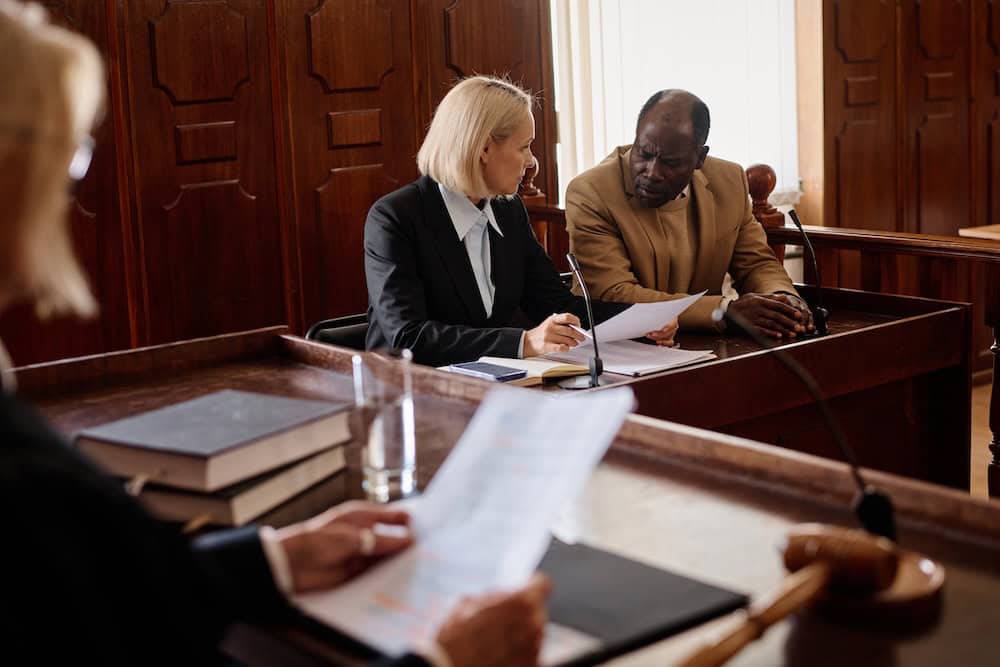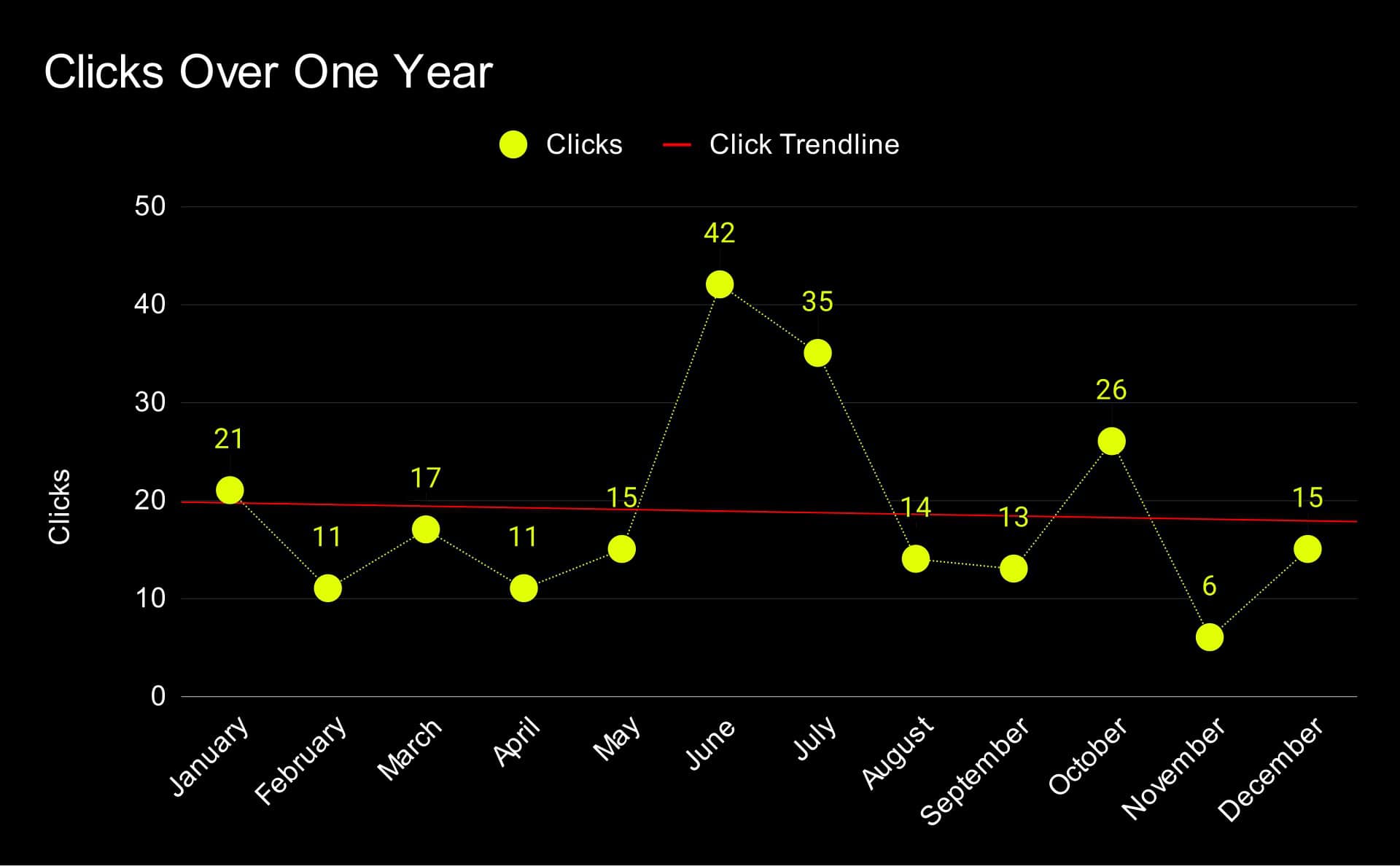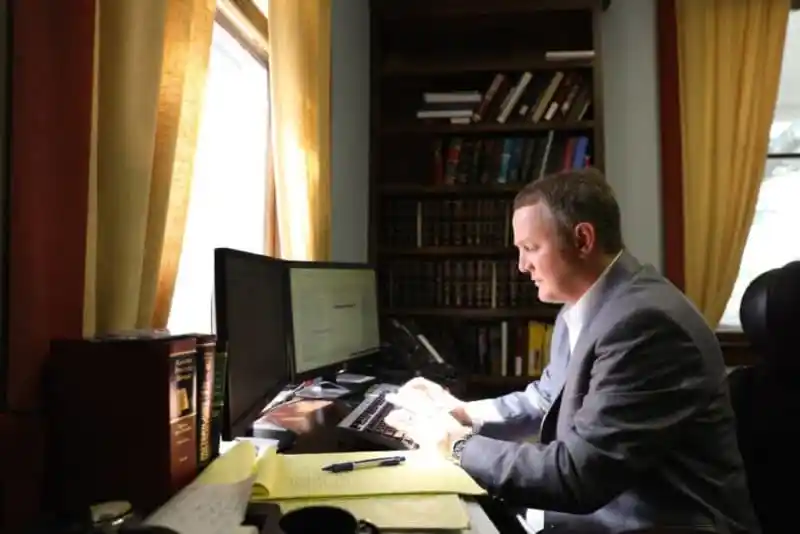Digital Marketing
For Law Firms
Free Consultation
Free Consultation
15 Years Offering Website Design & SEO For Law Firm Success
Website Design, Development, SEO and more.
Affordable and effective website design & search engine optimization for law firms is within reach.
Helping Law Firms Thrive in a Competitive Market
Digital Marketing for Law Offices
In the legal industry, standing out online is no longer optional—it’s essential for growth and success. Potential clients searching for legal services often turn to the internet to find reputable firms that meet their needs. However, with an overwhelming number of options, capturing their attention requires a strategic approach that sets your firm apart.
At Three Vistas, we specialize in helping law firms overcome these challenges with tailored digital marketing strategies. Whether you’re a family law attorney helping local families navigate difficult decisions, a personal injury lawyer seeking to build credibility, or a business law firm targeting corporate clients, we craft campaigns designed to deliver results.
Our approach is rooted in understanding your practice areas, identifying your target audience, and leveraging proven techniques to elevate your online presence. With services spanning SEO, website design, paid advertising, and branding, we ensure your firm is positioned as a trusted authority in the legal field.
With over 15 years of experience working with firms across family law, criminal defense, personal injury, medical malpractice, business law, real estate, immigration, adoption, and bankruptcy, we know what it takes to help law offices succeed online. Let’s work together to grow your practice and connect you with more clients.
Client Testimonials
Attract Clients Actively Searching for Legal Services
Law Firm Organic SEO
When potential clients look for legal services online, they typically start with a search engine. Organic search ensures your law firm’s website is visible when people search for terms like “family lawyer near me,” “top personal injury attorney,” or “business lawyer in Atlanta.” At Three Vistas, we specialize in driving targeted traffic to your site by optimizing its presence on search engines. Our approach to organic search combines proven SEO techniques with a deep understanding of the legal industry, helping your firm stand out in competitive search results.
Search Engine Optimization (SEO)
SEO is the process of increasing your website’s visibility in search engine results through strategic keyword targeting, technical optimization, and high-quality content creation. For law firms, this means appearing in front of potential clients when they search for services you offer, such as “criminal defense lawyer” or “immigration attorney near me.”
At Three Vistas, we tailor our SEO strategies to the unique needs of law firms. By identifying high-value keywords relevant to your practice areas, we ensure your website attracts visitors who are actively seeking legal help. Our team also stays ahead of evolving SEO trends to ensure your site remains competitive in search rankings over time.
Onsite SEO
Onsite SEO focuses on optimizing your website’s internal elements to improve both search engine rankings and user experience. For law firms, this means creating detailed, keyword-rich pages for each practice area, such as family law, personal injury, or real estate transactions. We also enhance meta descriptions, title tags, and headers to ensure search engines understand the relevance of your content.
Beyond technical improvements, onsite SEO involves crafting engaging, informative content that resonates with potential clients. Whether you’re answering frequently asked questions about legal procedures or showcasing client testimonials, onsite SEO ensures your website serves as a valuable resource that encourages visitors to contact your firm.
Offsite SEO
Offsite SEO is all about building authority and credibility for your website through external factors. For law firms, this means earning backlinks from reputable sources like legal directories, industry publications, and local media outlets. These backlinks act as endorsements, signaling to search engines that your site is a trusted resource for legal services.
At Three Vistas, we use ethical and effective link-building strategies to enhance your website’s authority. By targeting high-quality opportunities, we improve your site’s rankings and drive more qualified traffic to your firm.
Organic Search Matters.
Organic search is critical for law firms because it connects you with clients who are actively seeking your services. Unlike paid advertising, which provides immediate results, organic search delivers sustainable, long-term growth. With Three Vistas managing your SEO strategy, your law firm will rank higher in search results, attract more visitors, and convert those visitors into clients.
Ready to dominate search results? Contact Three Vistas today to start growing your law firm’s online presence through organic search.
Practice Areas We Serve

Family Law Attorney
Smiling mature Asian businesswoman with gray hair sitting among colleagues in conference room and touching shoulder of young specialist while celebrating him with success
Be the First Choice for Clients in Your Community
Local SEO for Law Firms
For most law firms, attracting local clients is essential to their success. Whether you’re a family lawyer assisting local families or a criminal defense attorney representing individuals in your area, potential clients often search for services close to home. Local SEO ensures your firm appears in local search results when clients search for phrases like “real estate lawyer near me” or “best bankruptcy attorney in Atlanta.”
At Three Vistas, we specialize in optimizing your law firm’s local presence. Through targeted strategies and meticulous attention to detail, we ensure that your firm stands out in local searches, driving inquiries and consultations from nearby clients.
Local Business Optimization
Local business optimization is the foundation of a successful local SEO strategy. It ensures your firm’s essential information—name, address, phone number (NAP), and website—is accurate and consistent across online directories like Yelp, Avvo, and local legal listings. This consistency builds trust with both search engines and potential clients, improving your visibility in local search results.
We also focus on creating and managing local citations, which are mentions of your business across the web. By ensuring these listings are complete, accurate, and optimized, we help your firm appear prominently in search results when potential clients look for attorneys in your area.
Google Business Profile Management
Your Google Business Profile (GBP) is one of the most powerful tools for local SEO. A well-optimized GBP not only helps your firm appear in local search results but also enhances your credibility by showcasing client reviews, professional photos, and detailed service descriptions.
At Three Vistas, we manage every aspect of your GBP. This includes:
- Ensuring your profile is complete and accurate with your practice areas, contact information, and office hours.
- Adding high-quality photos of your team and office to build trust with potential clients.
- Regularly updating your profile with posts, promotions, and updates to keep your firm active and engaging.
- Responding to client reviews to demonstrate professionalism and build rapport.
By maintaining and optimizing your Google Business Profile, we help your firm stand out in local searches and attract more inquiries.
Why Local SEO Matters
Local SEO is essential for law firms because it connects you with clients in your community who are actively searching for legal services. When potential clients need immediate help, they often rely on local search results to find an attorney. With Three Vistas managing your local SEO, your firm will rank higher, appear in the Google 3-Pack, and attract more clients from your target area.
Be the top choice for clients in your community. Contact Three Vistas today to learn how local SEO can help your law firm thrive.
Clients We Have Worked With








Custom Websites Built for Performance and Style
Law Firm Website Design Services
A Professional Website Builds Trust and Drives Results.
Your website is often the first impression potential clients have of your law firm. In a competitive legal landscape, a professionally designed, user-friendly website sets your firm apart and establishes credibility. At Three Vistas, we create custom websites tailored to your firm’s unique needs, ensuring that visitors are engaged, informed, and encouraged to take action.
Website Design
Your law firm’s website should do more than just look good—it should work for you. A well-designed website acts as a powerful marketing tool, guiding potential clients to learn about your services, understand your expertise, and contact your firm. At Three Vistas, we specialize in creating custom websites that highlight your practice areas, feature client testimonials, and include clear calls-to-action that drive inquiries.
We design every site with mobile responsiveness in mind, ensuring it performs flawlessly on any device. Whether clients are browsing on their phone or desktop, your website will provide a seamless and professional experience.
ADA Compliance
Accessibility is essential for law firms, not just to meet legal requirements but also to serve a diverse range of clients effectively. ADA compliance ensures that your website is usable by individuals with disabilities, including those who rely on screen readers or keyboard navigation.
At Three Vistas, we ensure your site meets all accessibility standards, from providing alt text for images to maintaining proper color contrast. This not only makes your website more inclusive but also demonstrates your firm’s commitment to serving all clients.
Technology Integrations
Modern clients expect convenience, and your website should deliver it. Technology integrations like appointment scheduling, and CRM systems streamline communication and improve client engagement.
At Three Vistas, we seamlessly integrate these tools into your website, allowing potential clients to connect with you quickly and efficiently. By incorporating advanced features, we create a website that doesn’t just inform—it actively supports your firm’s growth.
Elevate Your Law Firm’s Image and Functionality
A professionally designed website is more than just an online presence—it’s a critical tool for growing your firm. With Three Vistas, your website will not only look impressive but also drive meaningful results. Contact us today to create a website that reflects your expertise and sets your firm apart.
BASED IN GEORGIA, SERVING CLIENTS ACROSS THE UNITED STATES, CANADA AND GERMANY
Generate Immediate Leads with Targeted Campaigns
Paid Advertising for Law Practices
Industries We Serve
Comprehensive Solutions to Strengthen Your Brand
Additional Marketing Services for Law Firms
To truly stand out in the competitive legal industry, law firms must go beyond the basics of digital marketing. Additional services such as social media management, branding, and professional visuals can enhance your firm’s reputation, build trust, and connect you with your audience in meaningful ways. At Three Vistas, we provide a range of services tailored to help law firms grow their brand and establish themselves as trusted leaders in their communities.
Social Media Management
Staying active on social media is essential for modern law firms to engage with potential clients and showcase their expertise. Platforms like LinkedIn, Facebook, and Instagram allow you to share valuable content, including legal tips, updates, and success stories. However, managing multiple social accounts can be time-consuming. At Three Vistas, we handle every aspect of your social media strategy, from content creation and posting schedules to audience engagement and analytics tracking. By maintaining a consistent and professional presence online, we help your firm connect with clients and stay top of mind.
Branding & Logo Design
Your brand is more than just your logo—it’s the story and values your firm communicates to potential clients. A cohesive and professional brand builds trust, establishes credibility, and sets your law firm apart from competitors. At Three Vistas, we create custom branding solutions tailored to your practice, including logo design, color schemes, and brand messaging. Whether you’re launching a new firm or refreshing your existing image, we ensure your branding reflects the professionalism and expertise your clients expect.
Photography & Videography
High-quality visuals are essential for making a strong impression online and offline. Professional headshots, team photos, and promotional videos humanize your firm and give potential clients a sense of who you are. At Three Vistas, we provide photography and videography services that capture the personality and professionalism of your firm. From creating polished videos that explain your services to producing content for social media campaigns, we help your firm connect with clients on a deeper level.
Consulting
Even the most established law firms can benefit from expert advice to refine their marketing strategies. Our consulting services are designed to provide actionable insights and tailored guidance for overcoming specific challenges or achieving growth goals. Whether you need help with your overall marketing plan, social media campaigns, or website strategy, we work with you to develop a clear roadmap for success. With our expertise on your side, you’ll have the confidence to make informed decisions and drive meaningful results.
Signage & Print Media
In an increasingly digital world, print materials still play an important role in building your law firm’s reputation. Business cards, brochures, and event signage are tangible ways to leave a lasting impression on potential clients and partners. At Three Vistas, we design and produce high-quality print materials that align with your digital branding, ensuring a consistent and professional image across all platforms. Whether you need event displays for a conference or informational brochures for your office, we deliver materials that make your firm stand out.
Web Hosting
Law firms rely on their websites to build credibility, attract clients, and provide essential information. However, a slow or unreliable website can undermine trust and turn away potential clients. At Three Vistas, our web hosting services ensure your law firm’s website is always fast, secure, and available. We offer 24/7 uptime monitoring, SSL certificates for secure connections, and regular backups to protect your data. Our hosting solutions provide the reliability and security your firm needs, allowing you to focus on serving clients while we keep your online presence running smoothly.
By incorporating these additional services into your marketing strategy, your law firm can strengthen its brand, engage with clients, and leave a lasting impression. Let Three Vistas help you create a cohesive and comprehensive approach to marketing that supports your growth and success.
Offering The Experience To
Take Your Law Firm To The Top
Law Firms Trust Three Vistas
At Three Vistas, we understand that the legal industry demands a unique approach to digital marketing. With over 15 years of experience working with law firms specializing in family law, criminal defense, personal injury, medical malpractice, business law, real estate, immigration, adoption, and bankruptcy, we know what it takes to help legal professionals thrive in a competitive market. Our tailored strategies and comprehensive services are designed to showcase your expertise, build trust with potential clients, and drive measurable results.
Deep Industry Expertise
Having worked with law firms across a variety of practice areas, Three Vistas has developed an in-depth understanding of the specific challenges legal professionals face. Whether it’s creating visibility for a family law firm seeking to connect with local clients, helping a criminal defense attorney build authority in a competitive city, or driving inquiries for a personal injury practice, our solutions are informed by years of experience. This industry insight allows us to craft digital marketing strategies that resonate with your target audience and deliver results.
Comprehensive Services for Law Firms
We offer a full suite of services tailored to meet the unique needs of law firms. From designing professional websites and managing reliable web hosting to implementing comprehensive SEO strategies, we provide everything your firm needs to establish a strong online presence. For practices like real estate and business law, our SEO strategies ensure your services appear in front of the right audience. Additionally, our expertise in visual content creation—such as attorney headshots, team photoshoots, and video production—helps you present a polished and approachable image to potential clients.
Custom Solutions for Legal Professionals
No two law firms are alike, and we believe your digital marketing strategy should reflect that. At Three Vistas, we create personalized solutions that align with your firm’s goals and practice areas. For instance, we design targeted practice area pages for personal injury lawyers to highlight their case results, develop SEO strategies for bankruptcy attorneys to reach clients in need of immediate assistance, and produce professional videos for medical malpractice firms to explain complex legal concepts. Every solution is tailored to your specific needs, ensuring your online presence works as hard as you do.
Commitment to Professionalism
For clients searching for legal services, trust and credibility are paramount. Your digital presence must reflect the professionalism and expertise of your practice. At Three Vistas, we prioritize clean, elegant designs and high-quality visuals that align with the high standards of the legal industry. Whether it’s a family law firm aiming to convey compassion or a business law practice projecting corporate expertise, our work ensures your firm makes a lasting impression.
Proven Results for Law Firms
Our track record speaks for itself. Three Vistas has helped law firms across practice areas achieve tangible results, from higher search engine rankings to increased client inquiries. By combining data-driven strategies with creative solutions, we deliver outcomes that matter to your firm’s growth. For example, our SEO efforts have helped immigration law firms attract a steady stream of inquiries, while our social media campaigns have elevated the visibility of adoption attorneys in their local markets.
Seamless and Collaborative Process
We know that attorneys are busy professionals, and we aim to make the digital marketing process as seamless as possible. At Three Vistas, we prioritize open communication and collaboration, keeping you informed and involved every step of the way. Whether you’re working with us on website design, SEO, or a video shoot, we simplify complex processes and deliver results efficiently, so you can stay focused on serving your clients.
Three Vistas is more than a digital marketing firm—we’re a partner in your success. By combining industry expertise, personalized strategies, and a commitment to excellence, we help law firms like yours connect with clients, grow your practice, and stand out in the crowded legal market.
Ready to elevate your law firm’s digital presence? Contact Three Vistas today to learn how we can help your practice grow.















